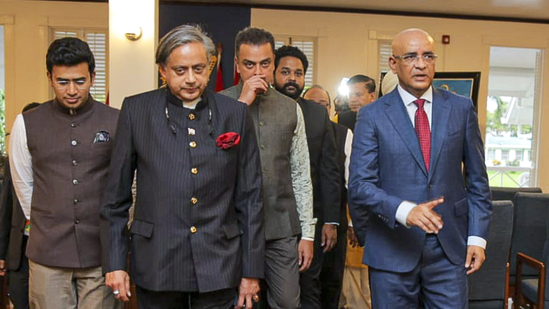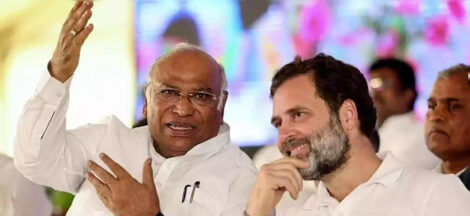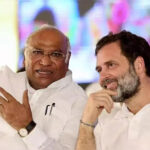Thiruvananthapuram MP Shashi Tharoor has defended the Rashtriya Swayamsevak Sangh by stating it “has moved on” from earlier objections that the Constitution lacks content from the Manusmriti, an ancient Hindu legal text. Addressing questions on remarks by Congress leader Rahul Gandhi—that the RSS prefers Manusmriti over the Constitution—Tharoor pointed to MS Golwalkar’s historical criticism of the Constitution and noted that the organisation’s stance has evolved.
Speaking at an event hosted by the Ahmedabad Management Association on 28 June, Tharoor remarked that Golwalkar, among others, once considered the absence of Manusmriti a flaw in the Constitution’s formulation. Tharoor affirmed this as a historical truth, while questioning whether it reflects the RSS’s current beliefs. He suggested the organisation itself is best placed to clarify its present viewpoint.
Rahul Gandhi had earlier attacked the RSS-BJP alliance for allegedly seeking to replace the Constitution with the Manusmriti, especially after RSS general secretary Dattatreya Hosabale called for a review of the terms ‘socialist’ and ‘secular’ from the Preamble. Gandhi asserted the “mask of RSS has come off again”, warning that the move would dismantle protection for marginalised communities and enslave them anew.
These exchanges coincide with heightened political tensions over the Preamble. Vice President Jagdeep Dhankhar underscored its sanctity, condemning the insertion of ‘socialist’ and ‘secular’ during the Emergency as “casual” and “farcical”. Meanwhile, the Congress has accused the RSS-BJP of orchestrating an “anti-constitutional” agenda aimed at reducing the stature of Dr B R Ambedkar’s vision.
Tharoor’s remarks come amid growing internal friction within the Congress. He has recently diverged from party narratives, praising Prime Minister Narendra Modi’s diplomatic initiatives, including “Operation Sindoor”, a move that triggered criticism from Congress leadership. Party president Mallikarjun Kharge noted the tensions, commenting that some appear to prioritise Modi over national interest.
Observers note Tharoor’s statement on the Constitution may ease some intra-party strain by offering a more historical perspective on the RSS’s position. By framing the Manusmriti criticism as a past viewpoint, he distances current discourse from hardline revisionism. Yet, his position remains politically delicate. He balanced his response by calling for dedication to the Constitution on the 50th anniversary of the Emergency—not political point-scoring.
The ideological clash centres on whether India should uphold the secular and socialist principles embedded through the Emergency-era amendment. RSS general secretary Hosabale justified the review retrospectively, noting Parliament and judiciary were paralysed during that period. Conversely, Rahul Gandhi and the Opposition see the call as an assault on pluralism and justice enshrined in the Constitution.
Tharoor’s stance underscores the shifting contours within the national conversation. By drawing a distinction between historical critique and contemporary intent, he offers room for dialogue—potentially softening partisan rhetoric. His remarks, however, also reinforce perceptions of a personal drift from core party messaging.
With the political temperature rising, all eyes now turn to the RSS’s official response and how Congress recalibrates its strategy ahead of an election year.




 Congress Gains Ground as Two Former Ministers Return
Congress Gains Ground as Two Former Ministers Return 